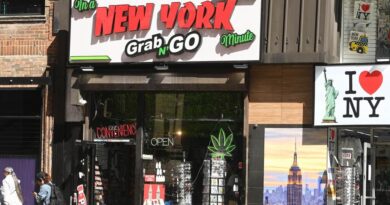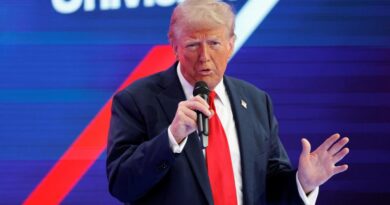Scientist wins top award for championing COVID common sense against media and government censorship

Few in the media seemed eager to attend a ceremony last week in Washington, D.C., where the prestigious American Academy of Sciences and Letters was awarding its top intellectual freedom award.
The problem may have been the recipient: Stanford Professor Dr. Jay Bhattacharya.
Bhattacharya has spent years being vilified by the media over his dissenting views on the pandemic. As one of the signatories of the 2020 Great Barrington Declaration, he was canceled, censored, and even received death threats.
That open letter called on government officials and public health authorities to rethink the mandatory lockdowns and other extreme measures in light of past pandemics.
All the signatories became targets of an orthodoxy enforced by an alliance of political, corporate, media, and academic groups. Most were blocked on social media despite being accomplished scientists with expertise in this area.
It did not matter that positions once denounced as “conspiracy theories” have been recognized or embraced by many.
Some argued that there was no need to shut down schools, which has led to a crisis in mental illness among the young and the loss of critical years of education. Other nations heeded such advice with more limited shutdowns (including keeping schools open) and did not experience our losses.
Others argued that the virus’s origin was likely the Chinese research lab in Wuhan. That position was denounced by the Washington Post as a “debunked” coronavirus “conspiracy theory.” The New York Times Science and Health reporter Apoorva Mandavilli called any mention of the lab theory “racist.”
Federal agencies now support the lab theory as the most likely based on the scientific evidence.
Likewise, many questioned the efficacy of those blue surgical masks and supported natural immunity to the virus — both positions were later recognized by the government.
Others questioned the six-foot rule used to shut down many businesses as unsupported by science. In congressional testimony, Dr. Anthony Fauci recently admitted that the 6-foot rule “sort of just appeared” and “wasn’t based on data.” Yet not only did the rule result in heavily enforced rules (and meltdowns) in public areas, the media further ostracized dissenting critics.
Again, Fauci and other scientists did little to stand up for these scientists or call for free speech to be protected. As I discuss in my new book, “The Indispensable Right,” the result is that we never really had a national debate on many of these issues and the result of massive social and economic costs.
I spoke at the University of Chicago with Bhattacharya and other dissenting scientists in the front row a couple of years ago. After the event, I asked them how many had been welcomed back to their faculties or associations since the recognition of some of their positions.
They all said that they were still treated as pariahs for challenging the groupthink culture.
Now the scientific community is recognizing the courage shown by Bhattacharya and others with its annual Robert J. Zimmer Medal for Intellectual Freedom.
So what about all of those in government, academia, and the media who spent years hounding these scientists?
Biden Administration officials and Democratic members targeted Bhattacharya and demanded his censorship. For example, Rep. Raja Krishnamoorthi (D-Ill.) attacked Bhattacharya and others who challenged the official narrative during the pandemic. Krishnamoorthi expressed outrage that the scientists were even allowed to testify as “a purveyor of COVID-19 misinformation.”
Journalists and columnists also supported the censorship and blacklisting of these scientists. In the Los Angeles Times, columnist Michael Hiltzik decried how “we’re living in an upside-down world” because Stanford allowed these scientists to speak at a scientific forum. He was outraged that, while “Bhattacharya’s name doesn’t appear in the event announcement,” he was an event organizer. Hiltzik also wrote a column titled “The COVID lab leak claim isn’t just an attack on science, but a threat to public health.
Then there are those lionized censors at Twitter who shadow-banned Bhattacharya. As former CEO Parag Agrawal generally explained, the “focus [was] less on thinking about free speech … [but] who can be heard.”
None of this means that Bhattacharya or others were right in all of their views. Instead, many of the most influential voices in the media, government, and academia worked to prevent this discussion from occurring when it was most needed.
There is still a debate over Bhattacharya’s “herd immunity” theories, but there is little debate over the herd mentality used to cancel him.
The Academy was right to honor Bhattacharya. It is equally right to condemn all those who sought to silence a scientist who is now being praised for resisting their campaign to silence him and others.
Jonathan Turley is the Shapiro professor of public interest law at George Washington University and the author of “The Indispensable Right: Free Speech in an Age of Rage.”



